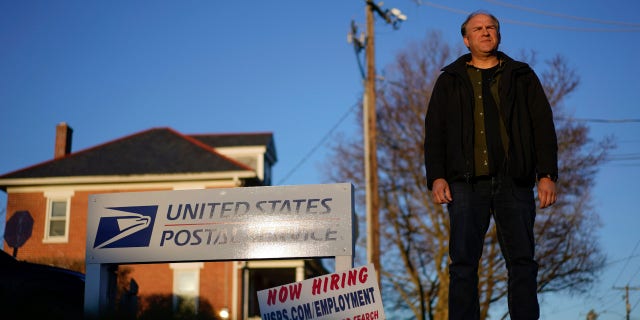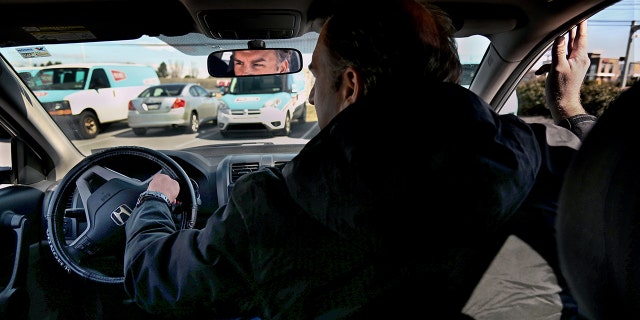

The U.S. Supreme Court on Thursday ruled in favor of a former postal worker who sued the federal government for denying his religious accomodation request.
Gerald Groff, a Christian mail carrier,from Pennsylvania, asked the court to decide if U.S. Postal Service could require him to deliver Amazon packages on Sundays, which he observes as the Sabbath. His attorney, Aaron Streett, argued in April that the court should overturn a 50-year-old precedent that established a test to determine when employers should make accommodations for their employees' religious practices.
Title VII of the Civil Rights Act of 1964 requires employers to accommodate employees’ religious practices unless doing so would be an "undue hardship" for the business. A Supreme Court case from 1977, Trans World Airlines v. Hardison, said employers could deny religious accommodations to employees when they impose "more than a de minimis cost" on the business.
Streett argued that the court should scrap the "de minimus" test, which he suggested has been abused by lower courts to deny religious accommodations, in favor of the plain language of Title VII, which would define "undue burden" in the same way it is defined in other federal laws, such as the Americans with Disabilities Act (ADA).
SUPREME COURT TAKES UP RELIGIOUS FREEDOM CASE INVOLVING POSTAL WORKER WHO REFUSED TO WORK ON SUNDAY

Gerald Groff, a former postal worker whose case was heard by the Supreme Court, stands during a television interview near a "Now Hiring" sign posted at the roadside at the United State Postal Service, Wednesday, March 8, 2023, in Quarryville, Pa. (AP Photo/Carolyn Kaster)
"The government believes undue hardship arises whenever there is lost efficiency, weekly payment of premium wages, or denial of a coworker's shift preference," Streett told the justices during oral arguments. "Thus, under the government's test, a diabetic employee could receive snack breaks under the ADA but not prayer breaks under Title VII, for that might cause lost efficiency."
U.S. Solicitor General Elizabeth Prelogar had argued against the court overturning Hardison, stressing that nearly half a century of established case law — including cases that protect religious observance — would be "up for grabs" if the court created a new "undue burden" standard. Appearing to concede the de minimus language in isolation can be unclear, she argued that the government's interpretation of the standard over more than four decades is context-based to whichever particular cases are present.
SUPREME COURT SIGNALS IT WILL MAKE IT EASER FOR WORKERS TO CLAIM RELIGIOUS ACCOMODATIONS

Gerald Groff in Lancaster, Pennsylvania on March 08, 2023. He is demonstrating how postal workers drive from the passenger seat (left hand on the wheel and left foot on the gas and brake leaving the right hand free to place mail in the boxes). A former part-time postal worker, Groff is a devout Christian and he sued the United States Postal Service claiming religious discrimination because he was being forced to work on Sundays. (Michael S. Williamson/The Washington Post via Getty Image)
Groff was a fill-in mail carrier who worked at the United States Post Office when other mail carriers were off.
In 2013, USPS contracted with Amazon to deliver packages and workers were required to take Sunday shifts for weekend deliveries.
Initially he was able to work out an arrangement with his supervisors to transfer to another branch that did not deliver on Sundays. When that branch also began Sunday deliveries, Groff was permitted to miss his shifts provided he could find someone to cover for him. However, Groff was frequently unable to do so and missed over two dozen assigned Sunday shifts.
Officials said Groff’s absences created a tense environment and contributed to morale problems. It also meant other carriers had to deliver more Sunday mail than they otherwise would.
Believing that he would be fired for missing Sunday shifts, Groff resigned from his job in 2019. He then obtained representation from the conservative First Liberty Institute, Baker Botts LLP, the Church State Council, and the Independence Law Center, and filed a federal lawsuit against the Postal Service.
The Associated Press contributed to this report. This is a developing story and will be updated.
